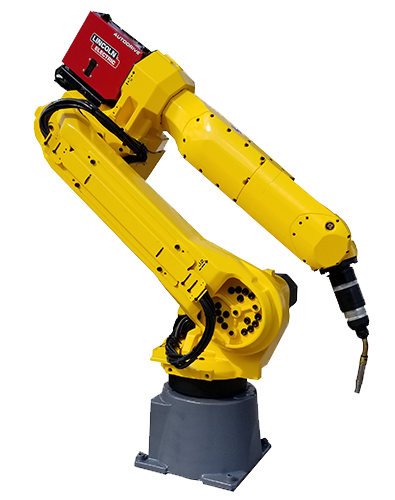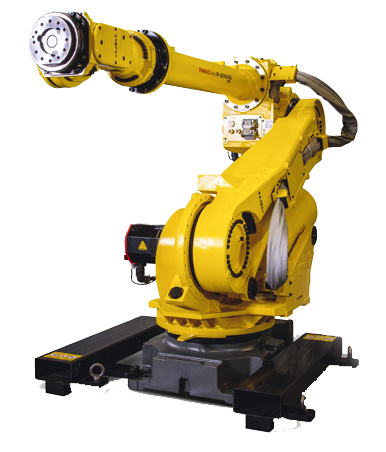Industrial robots have become an integral component to many factories across the world. They have been used for decades to automate manufacturing processes. There are many advantages of automating with robotics including increased productivity, quality, and worker safety, which is why their use only continues to grow. Factory robots are programmable, intelligent machines that excel at highly repeatable tasks. They are capable of taking over dangerous, tedious, and repetitive jobs from workers with greater accuracy and speed. In addition to improving manufacturing outcomes, Factory robots save money through reduced labor and material costs, resulting in greater profit potential for businesses.
Factory robots allow companies to expand their manufacturing capabilities. Six axis robots are able to complete more complex and demanding tasks with their advanced technology. They are versatile and able to easily adapt to production changes. They can handle multiple types of workpieces, different materials, and several applications. This provides manufacturers with greater flexibility to adjust to changing consumer demands quickly and allows them to stay competitive in global markets. Robotic vision and force sensors further expand the capabilities of robots.
What are Factory robots used for??
Factory robots have been implemented in numerous industries. The automotive industry was one of the first to automate their production lines with robots and today they are still the largest user of them. If you were to visit an automotive plant, you may see a FANUC R-2000ib/210F spot welding a car frame or the ABB 6640 mounting steering wheels to the interior of vehicles.Articulated robots have also been deployed in electronic factories for the delicate assembly of devices such as computers and smart phones. The FANUC Lr Mate 200id is used on electronic devices that often involve working with fragile, intricate, and small parts. Automating these assembly lines with a factory robot allows for the advancement of electronic devices while ensuring high product quality.
Factory robots are even helping aerospace manufacturers build safer airplanes while solving many of the headaches involved with working with extremely large airplane components. Factory robots are even being deployed in settings outside of the traditional industrial ones, such as in the pharmaceutical industry. Pharmaceutical manufacturers have begun using the FANUC M10ia for the sorting and filling of medications.
Robots provide incredible versatility with their multi-application capabilities. Robots can be used for welding automation, spot welding, robotic assembly, painting, packaging, palletizing, material removal, material handling, and inspection, among many other types of robotic applications. With the advancements in robotic technology there are very few tasks that cannot be automated with robots.
Types of Factory robots
There are many types of robots used to automate factories with the most common being articulated robots followed by delta, SCARA, and gantry. Articulated robots are popular due to their strength, flexibility, speed, and application capabilities. They are available in numerous sizes, payloads, and axes, making it easy for manufacturers to find an option best suited for their needs.SCARA and delta robots are both known for their speed. SCARA robots are typically used for light assembly tasks. Delta robots are ideal for high-velocity pick and place and part transfer applications with light payloads. Gantry robots feature a robotic manipulator mounted to a rail system that provides space savings and speed. In addition to these types, collaborative robots are now making their way onto factory floors. These robots are revolutionizing robotic automation by allowing humans and robots to work directly together without any barriers.

